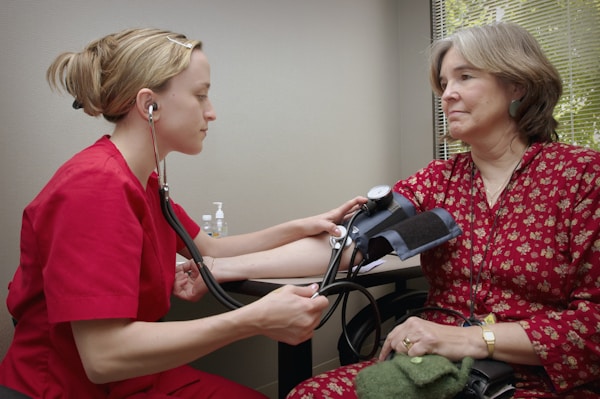Heart disease is one of the leading causes of death in the United States, claiming the lives of many. But it doesn’t have to be this way. Knowing how to prevent heart disease can help you stay healthy and live longer. In this article, we’ll explore some simple lifestyle changes that can reduce your risk of developing heart disease. Keep reading to learn more.
Get regular screenings from your cardiologist.

Preventing heart disease is key to a healthy lifestyle and can be done through various lifestyle changes and regular check-ups with a cardiologist. During these visits, the cardiologist will perform a physical exam, take your medical history, and ask about any symptoms or concerns you may have. The cardiologist may also order tests such as an electrocardiogram (ECG) to detect any potential heart problems.
Regular check-ups with a cardiologist are important for those who are at risk of developing heart disease, such as those with a family history of the disease, or for those who have already been diagnosed with heart disease. These check-ups can help detect any early signs of heart disease and allow the cardiologist to develop a plan of action that is tailored to individual needs. Depending on where you live, you can search for “cardiologists in Los Angeles,” for example, to find the best doctors in your area.
Eat a heart-healthy diet.
Eating a heart-healthy diet is essential for preventing heart disease. A heart-healthy diet requires a balanced diet rich in fruits and vegetables, whole grains, lean proteins, and healthy fats. Reducing saturated fat, cholesterol, and sodium intake is also important for preventing heart disease. Additionally, limiting processed and junk foods is important to ensure proper nutrition.
Maintain a healthy weight.

Maintaining a healthy weight is critical to preventing heart disease. People who are overweight are more likely to have other risk factors for heart disease, such as high blood pressure, high cholesterol, and diabetes. However, even if you are at a normal weight, there are still steps you can take to keep your heart healthy.
Eating a heart-healthy diet will help with weight control. In addition to eating a healthy diet, regular physical activity is essential for weight management and heart health. Aim for at least 30 minutes of moderate-intensity exercises, such as walking or jogging, five days a week. If you have a sedentary lifestyle, incorporate more activity into your daily routine, such as taking the stairs instead of the elevator or parking farther away from your destination.
Avoid tobacco products.

Preventing heart disease starts with understanding the risk factors, including smoking and using tobacco products. Avoiding tobacco products is one of the best things you can do to reduce your risk of heart disease. Smoking and using other forms of tobacco, such as cigars, pipes, and smokeless tobacco, increases your risk of heart attack, stroke, and other cardiovascular diseases. Quitting smoking is the single most important step you can take to reduce your risk of heart disease and other tobacco-related diseases.
Secondhand smoke also increases your risk of heart disease. Even if you don’t smoke, exposure to secondhand smoke increases your risk of developing heart disease. To reduce your risk of heart disease, avoid spending time in places where people are smoking. If you live with a smoker, encourage them to quit and keep the area where you live tobacco-free.
The effects of smoking and other tobacco products on heart disease are long-lasting. Even if you quit smoking, your risk of heart disease will still be higher than someone who has never smoked. However, quitting smoking at any age can promote a healthy life and reduce your risk of heart disease and other tobacco-related diseases.
Practice stress management.
Practicing stress management is an important part of preventing heart disease. Stress can cause numerous health problems, including physical and emotional strain on the body, leading to an increased risk of developing cardiovascular diseases. To practice stress management, one must first identify any potential sources of stress in their life. These can include work, family, relationships, financial matters, and health concerns. Once identified, developing a plan to reduce and manage stress is important. This can include developing healthy coping strategies such as exercise, deep breathing, and relaxation techniques. Additionally, it is important to prioritize tasks, delegate when possible and set aside time for activities that bring joy and relaxation.
Practicing healthy habits such as eating a balanced diet, being physically active, and avoiding smoking can help decrease the risk of developing heart disease. Additionally, getting regular check-ups and screening tests can help to diagnose any issues early on and allow for a more effective treatment plan. Altogether, preventing heart disease requires a comprehensive and consistent approach to health and wellness.




